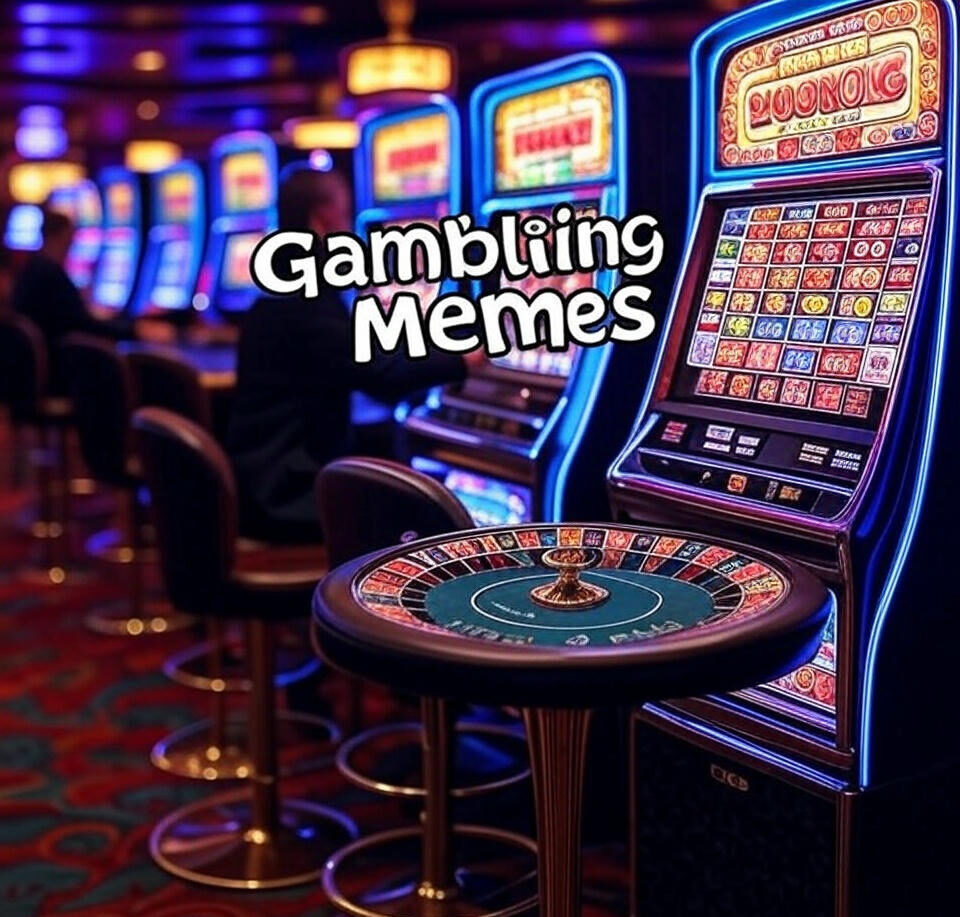Is Gambling Taking Over Your Life? Your Journey to Freedom Starts Here
Gambling can seem like a fun pastime, but for many, it becomes a destructive cycle affecting finances, relationships, and mental health. If you’re searching for answers to questions like “How do I quit gambling?” or “What should I do if I can’t stop?”, know that you’re not alone. This guide offers a step-by-step plan to help you regain control and find a path to a healthier, more fulfilling life.
We’ll delve into practical strategies, emotional support, and long-term solutions, drawing on insights from leading organizations like the Gateway Foundation, Better Health Channel, and Right Choice Recovery.
Fast Search
This Week’s Exclusive Casino Offers

330% Up to £2500 + 300 FS
Evoplay Winter Wins - Prise Pool £6000
Curaçao Gaming Control Board
Santeda International Limited
Velobet delivers a comprehensive crypto-friendly platform with advanced betting features like an integrated Bet Builder tool, AI-powered risk tracker, and in-house exclusive slot games, combining a massive game library with competitive sportsbook markets and exceptionally generous cryptocurrency bonuses up to 160% for crypto deposits. 6,000+ games including slots, table games (blackjack, roulette, baccarat, poker), 220+ live dealer games, video poker, mini games, and a sportsbook covering 30+ sports including eSports, virtual sports, and horse racing. 80+ game providers including NetEnt, Microgaming, Big Time Gaming, Nolimit City, Hacksaw Gaming, Red Tiger Gaming, Yggdrasil and many others.

Up to £3,000 + 200 FS
Cyprus company. Anjouan Offshore Financial Authority, Curacao and Tobique.
Fortunica offers an all-in-one gambling experience combining casino games with a comprehensive sportsbook, plus an exceptional 99-level VIP loyalty program that provides automatic enrollment, progressive cashback up to 10%, weekly reload bonuses, and exclusive access to the Wheel of Fortune feature. 5,000+ games including slots, table games (blackjack, roulette, baccarat, poker), live dealer games, video poker, instant win games, scratch cards, and a sportsbook. Popular Providers: Booongo, Slotopia, Endorphina, Gamzix, Swintt, Playson, Evoplay.

100% Up to 500 €/$/£ + 250 FS
Curacao eGaming Authority
Cosmobet combines extensive crypto payment options with instant transactions and offers a comprehensive platform featuring both casino games and a full sportsbook, making it ideal for players seeking flexibility in both gaming options and modern payment methods. 6,000-7,000+ games including slots, table games, live casino games with live dealers, and sportsbook. Over 100+ game providers including Evolution Gaming, Pragmatic Play, NetEnt, Microgaming, Big Time Gaming, Hacksaw Gaming and many others.

100% Up to 250€ on your first deposit
Curacao Gaming Authority
LetsJackpot stands out with a three-deposit welcome bonus totaling up to €1,000 and an exclusive LetsJackpot Wheel for new players, offering guaranteed prizes including free spins, bonus cash, and a chance to win up to €10,000, enhancing player engagement from the first spin.
Latest exclusive casino bonuses are here…
Why Is It So Hard to Break Free From Gambling? Understanding the Addiction
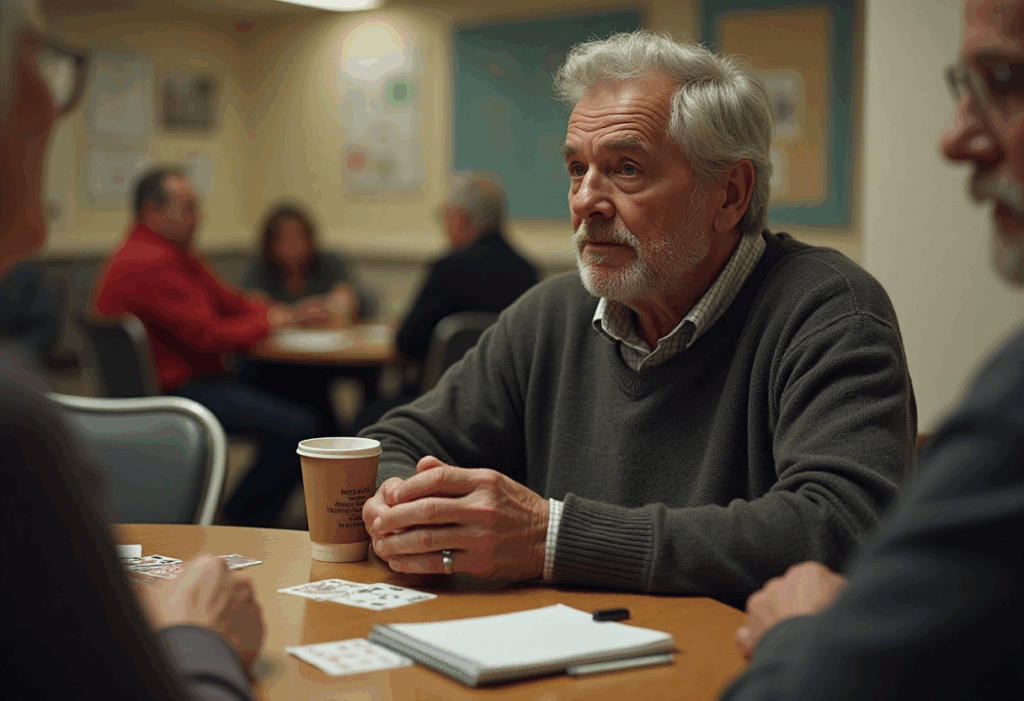
Before diving into actionable steps, it’s essential to understand what gambling addiction is and why it can feel so difficult to overcome. Gambling disorder, as classified by the American Psychiatric Association, is a behavioural addiction that shares similarities with substance dependencies. It activates the brain’s reward system, releasing dopamine—a neurotransmitter associated with pleasure—making the activity highly addictive.
According to the Better Health Channel, signs of gambling addiction include:
- Constantly thinking about gambling or planning the next session.
- Needing to wager larger amounts to feel the same thrill.
- Feeling irritable or restless when trying to cut back.
- Using gambling as a way to escape stress, anxiety, or depression.
- Chasing losses by continuing to gamble in hopes of winning back money.
- Lying to loved ones about the extent of your gambling habits.
- Neglecting relationships, work, or other responsibilities due to gambling.
For many, gambling becomes a coping mechanism for underlying issues such as stress, loneliness, or mental health struggles. The accessibility of online gambling has exacerbated the problem, with apps and websites available at the tap of a finger. The Gateway Foundation notes that online gambling can be particularly insidious because it’s often done in private, making it easier to hide the behaviour and harder to seek help.
Acknowledging that gambling has become a problem is a courageous first step. If you’re asking questions like “How do I stop gambling?” or “Why can’t I stop gambling?” you’ve already taken a significant leap towards recovery.
Step 1: Acknowledge the Problem and Commit to Change
The foundation of any recovery journey is recognising that gambling is negatively impacting your life. Denial is a common barrier, as many people convince themselves they can “win it back” or that their habits are under control. However, taking an honest look at the consequences—whether it’s mounting debt, strained relationships, or emotional distress—can be a powerful motivator.
Practical Actions to Take:
- Reflect on the Impact: Write down how gambling has affected your life. Have you lost money you couldn’t afford? Has it caused arguments with loved ones? Are you feeling anxious or depressed as a result? This exercise can help you see the bigger picture.
- Set a Clear Intention: Make a firm decision to stop gambling. You might say to yourself, “I am ready to stop gambling because I want to regain control of my life and finances.” A clear intention can anchor your efforts.
- Share Your Decision: Tell a trusted friend or family member about your goal. Speaking it aloud can reinforce your commitment and provide an additional layer of accountability.
Step 2: Seek Professional Help and Support
While self-help strategies are valuable, professional support can make a significant difference in overcoming gambling addiction. The Gateway Foundation emphasises that structured interventions, such as therapy and support groups, are highly effective for long-term recovery.
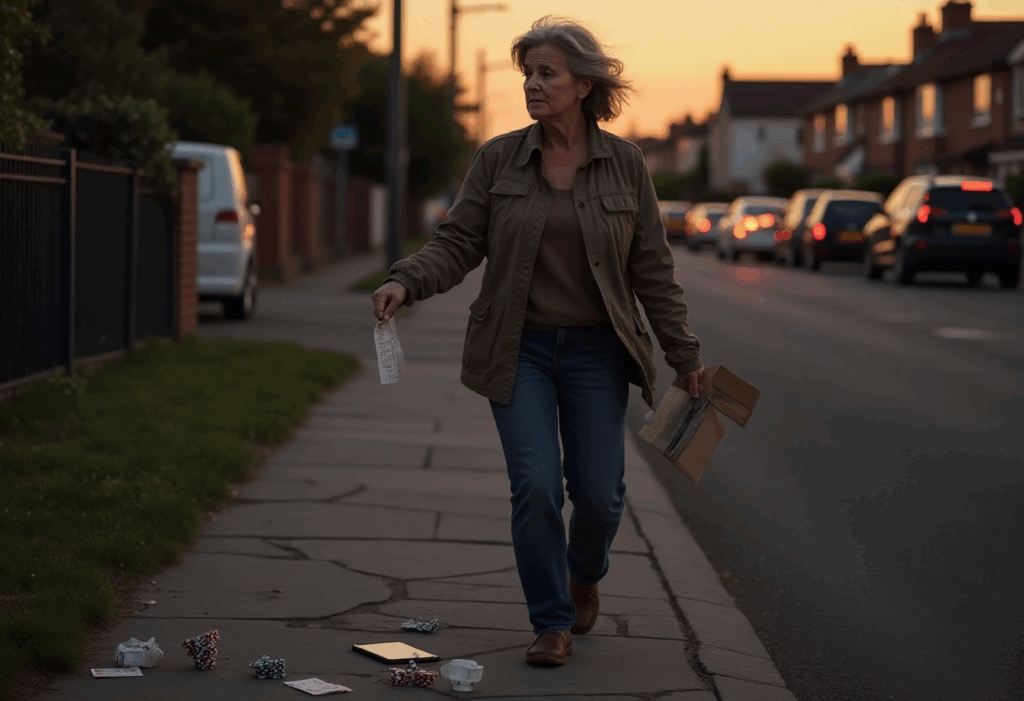
Types of Professional Help:
- Cognitive Behavioural Therapy (CBT): CBT is a widely recommended treatment for gambling addiction. It helps you identify and challenge distorted thinking patterns, such as the belief that you’re “due for a win” after a losing streak (known as the gambler’s fallacy). A therapist can also teach you healthier ways to cope with stress or boredom.
- Support Groups: Organisations like Gamblers Anonymous offer a safe space to share your experiences and learn from others who are on the same journey. Their 12-step programme provides a structured framework for recovery.
- Counselling for Underlying Issues: Many people gamble to escape emotional pain, such as anxiety, depression, or trauma. A counsellor can help address these root causes, reducing the urge to gamble as a coping mechanism.
How to Access Help:
- In the UK, organisations like GamCare provide free, confidential support, including counselling and helplines. You can visit their website (www.gamcare.org.uk) or call their helpline at 0808 8020 133.
- If you’re struggling with online gambling, Right Choice Recovery suggests reaching out to a local addiction treatment centre that specialises in behavioural addictions.
Step 3: Identify and Manage Your Triggers
Triggers are the situations, emotions, or environments that prompt the urge to gamble. Understanding what drives your gambling behaviour is crucial for avoiding or managing these triggers effectively.
Common Triggers:
- Emotional Triggers: Stress, boredom, loneliness, or even excitement can lead to gambling as a form of escape or thrill.
- Environmental Triggers: Passing a betting shop, receiving gambling-related advertisements, or spending time with friends who gamble can spark the urge.
- Financial Triggers: Having extra cash or facing financial pressure might tempt you to “solve” the problem through gambling.
Strategies to Manage Triggers:
- Keep a Journal: For a week, note down every time you feel the urge to gamble. What were you doing? How were you feeling? This can help you identify patterns.
- Avoid High-Risk Situations: If certain places or people encourage your gambling, steer clear of them. For example, if you’re tempted by betting shops, take a different route home.
- Develop Coping Mechanisms: Replace gambling with healthier outlets for your emotions. If stress is a trigger, try mindfulness techniques like deep breathing or meditation. If boredom drives you to gamble, find a new hobby, such as painting, hiking, or learning a musical instrument.
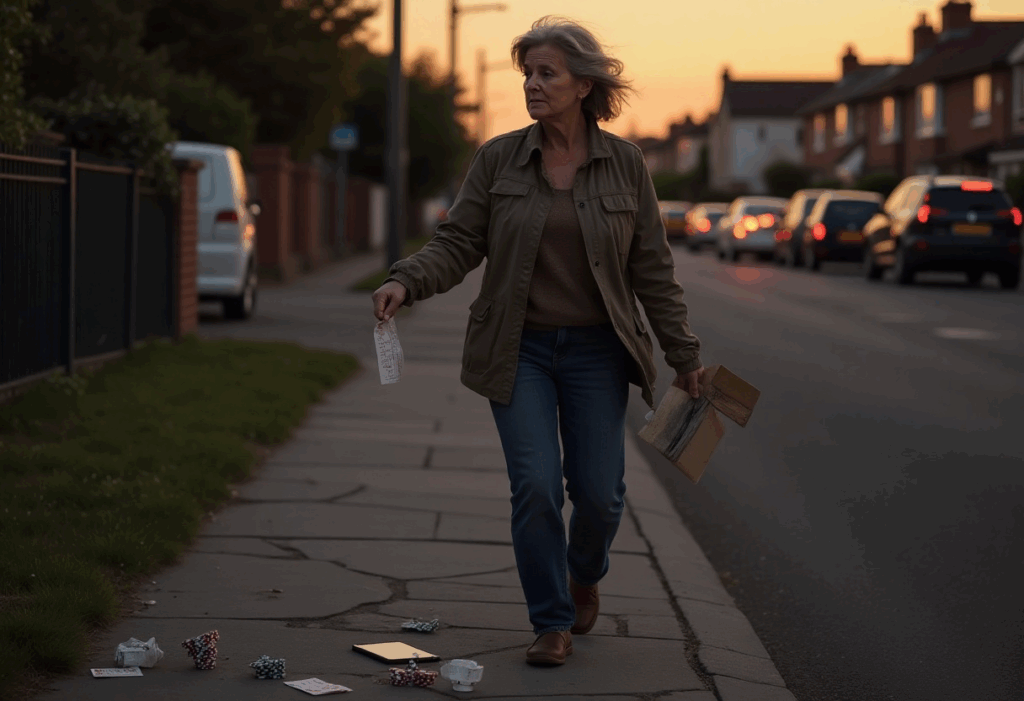
Step 4: Create Barriers to Gambling
One of the most effective ways to stop gambling is to make it harder to engage in the behaviour. This is particularly important for online gambling, which is accessible 24/7. Right Choice Recovery highlights several practical barriers you can put in place to reduce temptation.
Practical Barriers:
- Self-Exclusion Programmes: Many gambling platforms offer self-exclusion options, allowing you to block yourself from their services for a set period. In the UK, you can also sign up for GAMSTOP, a free service that prevents you from accessing most online gambling sites.
- Blocking Software: Tools like Gamban or BetBlocker can block gambling websites and apps on your devices. These are particularly useful for curbing online gambling impulses.
- Limit Access to Money: Reduce your ability to fund gambling by setting up financial safeguards. For example:
- Ask a trusted person to manage your finances temporarily.
- Cancel credit cards or lower their limits.
- Set up a separate savings account with withdrawal restrictions.
- Remove Gambling Apps: Delete gambling apps from your phone and unsubscribe from gambling-related emails or notifications.
Step 5: Build a Support Network
Recovery is often more successful when you have a supportive network around you. Isolation can worsen gambling addiction, as it may lead to secretive behaviour and shame. Sharing your journey with others can provide emotional support and accountability.
How to Build Your Network:
- Talk to Loved Ones: Be honest with family or friends about your struggle. They can offer encouragement, help you stay on track, and even assist with practical steps, like managing your finances.
- Join a Support Group: Gamblers Anonymous meetings (available both in-person and online) connect you with others who understand what you’re going through. Visit www.gamblersanonymous.org.uk for more information.
- Find an Accountability Partner: Choose someone you trust to check in with regularly. They can help you stay committed to your goals and provide a listening ear during tough moments.
Step 6: Replace Gambling with Healthy Alternatives
Gambling often fills a void—whether it’s the need for excitement, social connection, or stress relief. To stop gambling for good, you’ll need to find alternative activities that meet these needs in a healthier way.
Ideas for Alternatives:
- Physical Activities: Exercise, such as running, yoga, or team sports, can boost your mood and reduce stress. The endorphins released during physical activity can mimic the “high” of gambling in a positive way.
- Creative Hobbies: Explore activities like writing, painting, or playing a musical instrument. These can provide a sense of accomplishment and purpose.
- Social Engagement: Spend more time with friends or family who don’t gamble. Join a club or community group to build new connections.
- Mindfulness Practices: Meditation, journaling, or gratitude exercises can help you manage emotions without turning to gambling.
The Better Health Channel suggests setting small, achievable goals for these new activities. For example, commit to a 20-minute walk each day or sign up for a weekly art class. Over time, these habits can replace the role gambling once played in your life.
Step 7: Address Financial Challenges and Save Money
One of the most devastating effects of gambling is financial loss. If you’re wondering, “How can I stop gambling and save money?” the answer lies in a combination of debt management, budgeting, and rebuilding financial security.
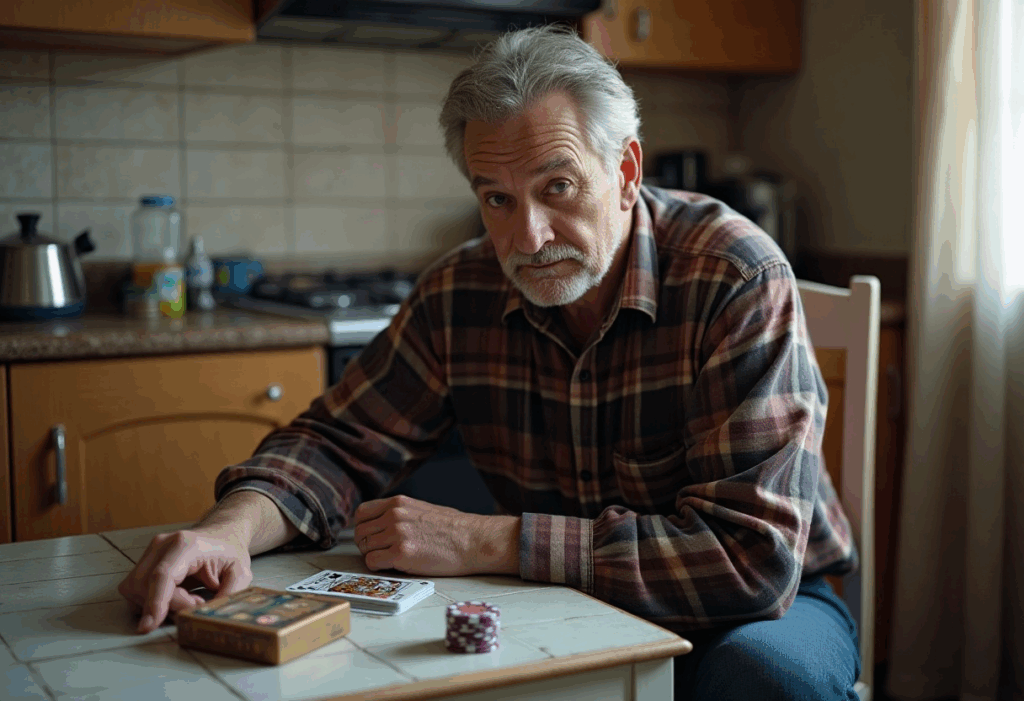
Steps to Financial Recovery:
- Assess Your Debt: Calculate how much you owe and to whom. This can be daunting, but it’s a necessary step to regain control.
- Seek Financial Advice: In the UK, organisations like StepChange (www.stepchange.org) offer free debt advice and can help you create a repayment plan.
- Create a Budget: Track your income and expenses to ensure you’re living within your means. Use budgeting apps like Money Dashboard or Yolt to monitor your spending.
- Set Savings Goals: Once you’ve stopped gambling, redirect the money you would have spent on bets into a savings account. Even small amounts can add up over time, giving you a sense of accomplishment.
Step 8: Address Underlying Emotional and Mental Health Issues
Gambling addiction often coexists with mental health challenges like anxiety, depression, or low self-esteem. If you’re saying, “I can’t stop gambling,” it might be because these underlying issues are driving your behaviour. Addressing them is crucial for lasting recovery.
What to Do:
- Seek Therapy: A counsellor can help you explore the emotional reasons behind your gambling and develop healthier coping strategies.
- Consider Medication: If you have a diagnosed mental health condition, a doctor might recommend medication to manage symptoms like depression or anxiety.
- Practice Self-Care: Prioritise sleep, nutrition, and relaxation to improve your overall well-being. Small changes, like eating a balanced diet or getting 7–8 hours of sleep, can make a big difference.
Step 9: Prepare for Relapses and Stay Resilient
Relapses are a common part of the recovery process, but they don’t mean failure. The key is to learn from setbacks and keep moving forward. The Gateway Foundation advises viewing relapses as opportunities to strengthen your strategies.
How to Handle a Relapse:
- Don’t Be Too Hard on Yourself: Shame and guilt can lead to a cycle of more gambling. Instead, acknowledge the slip-up and refocus on your goals.
- Analyse What Happened: What triggered the relapse? Were you stressed, bored, or exposed to a gambling environment? Use this insight to adjust your approach.
- Reach Out for Support: Contact your support network or therapist to discuss the relapse and get back on track.
Step 10: Celebrate Your Progress and Stay Committed
Breaking free from gambling is a significant achievement, and it’s important to celebrate your milestones along the way. Whether it’s one week without gambling or paying off a portion of your debt, recognising your progress can keep you motivated.
Ways to Celebrate:
- Treat yourself to something small, like a nice meal or a day out, using the money you’ve saved from not gambling.
- Share your achievements with your support network—they’ll be proud of your efforts.
- Reflect on how far you’ve come by revisiting your initial reasons for wanting to stop gambling.
Supporting a Loved One with Gambling Addiction
If you’re reading this because you want to help a friend or family member stop gambling, your support can make a world of difference. However, it’s important to approach the situation with empathy and clear boundaries.
How to Help:
- GamCare or the National Problem Gambling Clinic
- Encourage Professional Help: Gently suggest they seek counselling or join a support group, and offer to help them find resources.
- Set Boundaries: Avoid lending them money to gamble or covering their debts, as this can enable the behaviour.
- Be Patient: Recovery takes time, and there may be setbacks. Offer encouragement without judgment.
Conclusion: A New Beginning Beyond Gambling
Stopping gambling is not just about breaking a habit—it’s about reclaiming your life and building a future free from the stress and chaos that gambling brings. By acknowledging the problem, seeking support, managing triggers, and replacing gambling with healthier habits, you can overcome this addiction and create a more balanced, fulfilling life.
If you’re feeling overwhelmed, remember that you don’t have to do this alone. Reach out to organisations like GamCare, join a support group, or speak to a trusted friend. Every step you take towards recovery is a victory, and with persistence, you can achieve lasting freedom from gambling.

